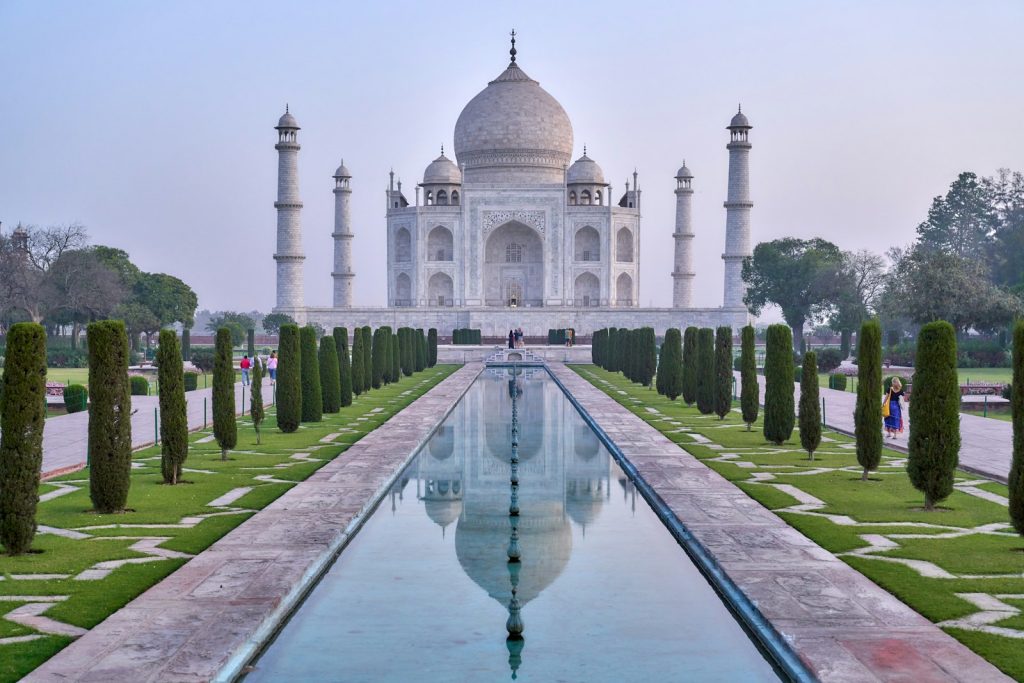Understanding the self can feel like unraveling a complex puzzle. Classical Indian philosophy, however, offers some profound insights.
Often, we find ourselves contemplating who we truly are beyond our physical bodies and societal roles. This is where classical Indian philosophy steps in, shedding light on the true essence of self.
And trust me, you don’t have to be a philosopher to get it! By embracing these eight simple yet powerful concepts from classical Indian philosophy, you can deepen your understanding of yourself.
Here are eight ways this ancient wisdom can guide us towards self-discovery. So sit back, relax, and let’s journey into the realm of the self.
1) The concept of Atman
Classical Indian philosophy introduces us to Atman, the idea of the eternal self.
It’s a term that you might not have come across before, but it’s fundamental to understanding our true nature according to ancient Indian philosophy.
Atman refers to our innermost essence, our true self that exists beyond our physical bodies and ever-changing minds. It’s the part of you that remains constant amidst the sea of change that is life.
Why does this matter? Because recognizing the Atman within us helps us understand that we are more than just our thoughts, emotions, and experiences.
This realization can be incredibly liberating. It allows us to detach from the temporary ups and downs of life and instead connect with our unchanging, eternal self.
So, next time you find yourself caught up in the whirlwind of life’s changes, remember the concept of Atman. It might just provide the perspective you need.
2) The principle of Karma
The philosophy of Karma is another cornerstone in classical Indian thought. It essentially states that every action has a consequence.
Let me share a personal experience that really drove this concept home for me. A few years back, I was working on a project with a colleague who was constantly negative and pessimistic. His attitude was draining, and it began to affect my own work.
Instead of confronting him or complaining about him to others, I decided to apply the principle of Karma. I began consciously treating him with kindness and understanding. I listened when he spoke, offered help when he seemed overwhelmed, and tried to bring positivity into our interactions.
Over time, there was a noticeable shift. His negativity lessened, our working relationship improved, and the overall atmosphere became more constructive.
Get Smarter Everyday Join Us On WhatsApp
This experience taught me first-hand the truth of Karma – our actions do indeed shape our reality. Understanding this can give us a sense of control over our lives and encourage us to choose our actions wisely.
3) The doctrine of Dharma
Dharma is another crucial concept in classical Indian philosophy. It refers to the moral and ethical duties and responsibilities that one must follow to live a righteous life.
In the ancient Indian epic, the Mahabharata, the protagonist Arjuna is faced with a moral dilemma on the battlefield. He is torn between his duty as a warrior, which requires him to fight, and his love for his relatives, who are on the opposing side.
In this critical moment, his charioteer Krishna, who is actually a divine figure in disguise, advises him about Dharma. Krishna explains that it’s Arjuna’s Dharma as a warrior to fight for justice, even if it means going against his own kin.
This narrative from one of the world’s longest epics beautifully illustrates the significance of Dharma. It suggests that fulfilling our responsibilities, even when it’s challenging, leads to righteousness and ultimately, to self-understanding.
4) The idea of Maya
One of the most distinctive concepts in classical Indian philosophy is that of Maya, often translated as ‘illusion’.
This philosophy suggests that the world as we perceive it through our senses is not the ultimate reality but a sort of illusion. This doesn’t mean that the physical world doesn’t exist, but rather that there’s more to existence than what meets the eye.
The idea of Maya encourages us to question our perceptions and beliefs. It nudges us to look beyond the surface and seek deeper truths about ourselves and the world around us.
Understanding Maya can lead to a profound shift in perspective. It can help us see beyond the superficial aspects of life and connect with our inner selves on a deeper level.
5) The practice of Meditation
Classical Indian philosophy emphasizes the importance of meditation for self-understanding. It’s a practice that encourages us to quiet the mind and tune into our inner selves.
Meditation is not just about relaxation. It’s a journey inward, a chance to explore the depths of our being that often remain unexplored in the hustle and bustle of daily life.
There’s a certain beauty in this silence, this introspection. It’s in these quiet moments that we often find our most profound insights, our deepest understandings of who we are.
Incorporating meditation into your daily routine can be transformative. It allows you space and time to connect with yourself, to explore your thoughts and feelings without judgment, and ultimately, to better understand your true self.
6) The concept of Moksha
Moksha, or liberation, is the ultimate goal in classical Indian philosophy. It is the release from the cycle of birth, death, and rebirth, and the realization of our true nature.
Get Smarter Everyday Join Us On WhatsApp
There was a time in my life when I felt trapped in a cycle of my own. I was stuck in a job I didn’t enjoy, in a city where I didn’t feel at home. I was repeating the same routines, the same mistakes, feeling more and more disconnected from myself.
Discovering the concept of Moksha during this time was like finding a guiding light. It gave me the courage to break free from my own cycle. I quit my job, moved to a new city, and started exploring different paths.
Moksha reminds us that we have the power to liberate ourselves from our own cycles of unhappiness and dissatisfaction. It’s an empowering concept that encourages us to take control of our lives and strive for self-realization.
7) The principle of Ahimsa
Ahimsa, or non-violence, is a fundamental principle in classical Indian philosophy. It’s not just about physical violence but extends to thoughts and words as well.
This principle encourages us to cultivate compassion and understanding, not just towards others but towards ourselves too.
Practicing Ahimsa means refraining from harsh self-judgment and criticism. It’s about treating ourselves with kindness and understanding, even when we make mistakes or fall short of our own expectations.
Adopting Ahimsa can lead to greater self-acceptance and self-love. It encourages us to embrace our flaws and imperfections, fostering a deeper understanding and compassion towards our own selves.
8) The philosophy of Advaita Vedanta
Advaita Vedanta is a school of thought in classical Indian philosophy that advocates non-duality. It proposes that the individual self and the universal self are not separate, but one.
This philosophy can revolutionize our understanding of the self. It suggests that we are not isolated beings, but intricate parts of a grand cosmic play.
Recognizing this interconnectedness can lead to a profound sense of unity and belonging. It can help us transcend feelings of isolation and separation, fostering a deeper sense of self that is intertwined with the universe itself.
Final reflections: The journey within
The depths of classical Indian philosophy offer a rich tapestry of concepts that can profoundly influence our understanding of the self.
From the eternal nature of Atman to the liberating concept of Moksha, these philosophies invite us to embark on a journey within, to explore the deepest corners of our being.
The great Indian philosopher, Patanjali, once said, “When you are inspired by some great purpose, some extraordinary project, all your thoughts break their bounds.”
Perhaps, understanding ourselves is that great purpose. It’s a path filled with self-discovery and introspection, leading us towards a deeper connection with ourselves and the world around us.
Get Smarter Everyday Join Us On WhatsApp
As we navigate through life’s complexities, these classical Indian philosophies can serve as guiding stars, illuminating our paths and enriching our understanding of who we truly are.
Because at the end of the day, understanding the self is perhaps one of the most profound journeys we can embark on.
If you found this blog post insightful be sure to share it with those out there that are still not aware of it Don't forget to FOLLOW US on Facebook and hit the LIKE button for more new content. Thanks so much for reading.....






